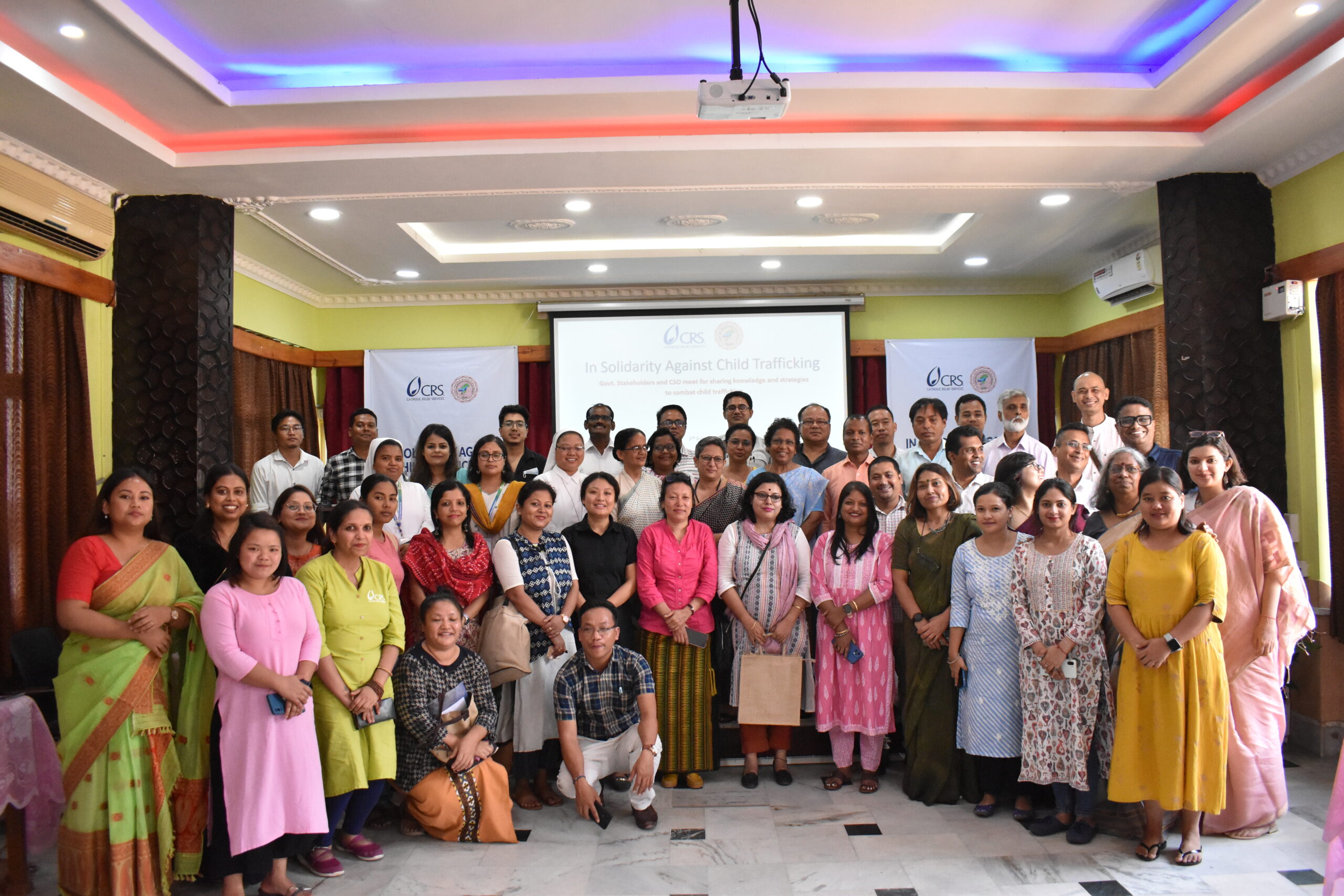News
SIGMA Foundation Joins Hand with UNICEF in Building Capacity of Gram Panchayats to Sustain Open Defecation Free Status and Manage Solid and Liquid Wastes with Climate Resilience and Environmental Sustainability
Date: 22nd February, 2024
UNICEF has partnered with SIGMA Foundation to sustain Open Defecation Free (ODF) status and to also manage solid and liquid waste scientifically, known as ODF plus activities under the Swachh Bharat Mission Phase II. 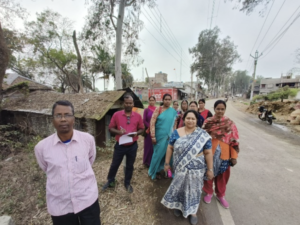 Further, the related services should be improved to make those Climates Resilient and Environmentally Sustainable (CCES). This will be done in 10 selected Gram Panchayats (GPs) of Malda, Murshidabad and South 24 Parganas. First the status of ODF and its sustainability and that of ODF Plus services will be assessed through field survey and that will be followed by 2-days training of the GP officials and other stakeholders to plan for improvement of the system as a part of Gram Panchayat Development Plan (GPDP).
Further, the related services should be improved to make those Climates Resilient and Environmentally Sustainable (CCES). This will be done in 10 selected Gram Panchayats (GPs) of Malda, Murshidabad and South 24 Parganas. First the status of ODF and its sustainability and that of ODF Plus services will be assessed through field survey and that will be followed by 2-days training of the GP officials and other stakeholders to plan for improvement of the system as a part of Gram Panchayat Development Plan (GPDP). 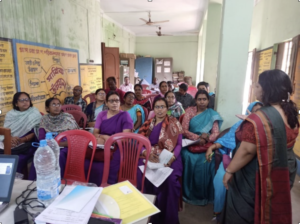 Training programme has started from the 19th February in Murshidabad and the same will be taken up in other districts from the week starting from 26th February. The participants are being trained on various aspects of ODF sustainability, ODF plus and CCES and the gap that exists based on field survey by SIGMA Foundation. The second day starts with a transect walk in the village for the participants to identify the gaps after they are capacitated to assess the same in the first day and that is followed by a participatory exercise to document all the gaps and possible improvement. The interventions required for improvement will be done by designing appropriate schemes to be included under GPDP 2024-25 and those for subsequent years. Experts of SIGMA Foundation will mentor the GPs for 4 months to build the capacity of the GPs.
Training programme has started from the 19th February in Murshidabad and the same will be taken up in other districts from the week starting from 26th February. The participants are being trained on various aspects of ODF sustainability, ODF plus and CCES and the gap that exists based on field survey by SIGMA Foundation. The second day starts with a transect walk in the village for the participants to identify the gaps after they are capacitated to assess the same in the first day and that is followed by a participatory exercise to document all the gaps and possible improvement. The interventions required for improvement will be done by designing appropriate schemes to be included under GPDP 2024-25 and those for subsequent years. Experts of SIGMA Foundation will mentor the GPs for 4 months to build the capacity of the GPs.
Research Paper from SIGMA Foundation grabs a prestigious place in World Focus Issue on COP 28, UAE
Dated: 9th February, 2024
We are immensely proud to announce that one of our publications by our research stalwarts,  Dr. Debasri Mukherjee (Sr. Research Officer) and Dr. M. N. Roy (President) have been published in the globally prestigious journal named World Focus (Peer reviewed) under special issue of COP 28, UAE, Climate Change and Global Warming.
Dr. Debasri Mukherjee (Sr. Research Officer) and Dr. M. N. Roy (President) have been published in the globally prestigious journal named World Focus (Peer reviewed) under special issue of COP 28, UAE, Climate Change and Global Warming.
The work was presented in Indian Science Congress, January 2020 and then it went on a journey for international publication. It reflected the community driven action points in Indian context which also supported the COP 28 recommendations.
Publication title is “Decentralized Water Governance Mobilizing Community towards Sustainable Development Goal – 6 by 2030″, January 2024, ISSN 2230 – 8458, E-ISSN 2351 – 5063, US Library Congress Number 909/0345.
SIGMA Foundation makes significant contribution in Implementation of JJM in Maharashtra
Date: 31st January, 2024
SIGMA Foundation was engaged as an Independent Support Agency (ISA) for implementation of Jal Jeevan Mission (JJM) in October 2021 for a period of one year. The engagement has been renewed in 2022 and 2023 and this is the third year of continuous support that SIGMA Foundation has been providing to Aurangabad Zilla Parishad. Several activities have been taken up by SIGMA Foundation from the beginning of its functioning as ISA.
At the beginning of implementation of JJM in Aurangabad district, which started in Gangapur Taluka of the district) the team focused on strengthening the VWSC (Village Water Sanitation Committee) and helped them to open account so that public contribution can be deposited. The team mobilized the people and made them aware of the JJM and the PWSS to ensure that 10% of the fund required to install the Piped Water Supply System (PWSS) is deposited by the potential consumers as their share. Simultaneously, survey was conducted in the command area of the PWSS covering the GP to prepare a layout plan of the proposed PWSS so that every household can be provided with Functional House Tap Connection (FHTC) and the survey data was used to prepare the DPR for the PWSS by Aurangabad Zilla Parishad.
After preparation of DPR, the team visited each Villages in the Gangapur Taluka of Aurangabad District. They were in continuous touch with the Gram Panchayats and the villagers, advised and monitored the depth of excavation for laying pipeline, the bedding of soil, location of cattle trough etc. as per DPR and follow progress using a recap sheet.
The team closely monitored the pipe laying work right from when the layout was given which followed excavation and then pipe laying and eventually provided connection to the water supply through FHTC. About 13000 FHTCs have been provided under supervision of SIGMA Foundation officials since the project started.
The team also remained responsible for uploading the data in the E- Jal Shakti Website and Geo-tagging the source of water and the location of the ESR (Elevated Service Reservoir). The work has been completed in almost 210 villages of Gangapur block.
The other important work taken up by SIGMA Foundation was testing water quality for both chemical and bacteriological parameters and train. More than 500 women (Anganwadi worker or supervisor, ASHA and Jal Surakshak), covering the entire block, have been trained by our team so far.
SIGMA Foundation is working towards understanding the status of Tuberculosis and associated factors in Chest Clinics of Kolkata
India accounts for 27 percent of the total TB cases in the world, according to the recently released Global TB Report 2023 by the World Health Organisation. Almost 28.2 lakh people in India got tuberculosis in 2022 with an estimated incidence rate of 199 cases per 100,000 population. India has set a target of eliminating tuberculosis by 2025 and the national strategic plan 2017-2025 sets the target to not more than 44 new TB cases per lakh population by 2025. There is a higher inclination of the TB patients to undergo treatment from the public places.
With this backdrop, SIGMA Foundation in association with SFCSDF is conducting a study across 10 Chest Clinics of Kolkata and their sub units with patients seeking treatment for tuberculosis from these clinics. The study has commenced from 11th December, 2023 and is expected to continue till the end of this month. The study titled “Understanding the status of Tuberculosis and its associated factors in Kolkata, West Bengal” will identify socio-economic, household and behavioural factors other than contextual factors associated with TB prevalence. It will also delineate the treatment pathways (health seeking behaviour, knowledge level, treatment adherence etc.) of the patients in addition to cost factors, Quality of life, stigma and challenges faced in day-to day life.
SIGMA Foundation sets foot in the Hills of Bengal as ISA under Jal Jeevan Mission being implemented by PHED, Govt. of West Bengal
Date: 5 December, 2023
This November SIGMA Foundation has been engaged as the Implementation Support Agency (ISA) by Public Health Engineering Directorate, Govt. of West Bengal for implementation of community mobilization and capacity building activities at Darjeeling and Kalimpong Districts in West Bengal for implementation of the Jal Jeevan Mission (JJM). JJM is being implemented in the said two districts by the Neorakhola Water Supply and Maintenance Division of the PHED, West bengal. It is an immense opportunity for SIGMA Foundation to be a part of implementation of JJM in the said two districts and reach out to the communities within the project areas. SIGMA Foundation is already working as ISA in Aurangabad district of Maharashtra for the last two years.
Enabling and Skilling Communities of Bankura district under ADB funded West Bengal Drinking Water Sector Improvement Project (WBDWSIP)
Date: 14 September 2023
SIGMA Foundation was engaged by the PHED West Bengal to be the NGO Contractor under the Asian Development Bank (ADB) assisted WBDWSIP for the district of Bankura. The period of engagement was from June 2019 to December 2022 and the project value was around Rs 1.41 crore.
SIGMA Foundation has successfully prepared and implemented the CAPP (Community Awareness and Participation Plan) and GESI (Gender Equality and Social Inclusion) Plan, which included primary survey and analysis of data. For generating community awareness on the project and associated issues related to water, extensive IEC materials were developed and disseminated. VWSCs (Village Water & Sanitation Committees) were established and made functional in all the 31 GPs of the 4 blocks covered under the project. Training modules were prepared for building capacity of the GP/VWSC functionaries, community members, school students. Training of 478 GP members (with 42.2% female participation) were conducted on AMSDF (Asset Management Service Delivery Framework). 418 VWSC members were oriented amongst which 51.7% were female participants and 38.1% belonged to vulnerable section. Leadership and livelihood training was imparted to 500 community members (49.6% female). A total of 9,173 community members were reached through 124 Master Trainers and awareness was generated on water conservation, demand management and WASH (Water, Sanitation and Hygiene). Training programme on climate change on water conservation was conducted in 31 schools, one from each of the 31 GPs, in which 1240 students (45% girls) participated.
The first Water Security & Safety Plan (WSSP) of the country was prepared for Brahmandiha GP of Indpur block by the experts of SIGMA Foundation under this project. The WSSP was presented before a global audience through a virtual platform in the first E market place event organized by ADB in 2021. SIGMA Foundation got the “Certificate of Appreciation” from ADB Manila for this achievement.
Procedures were developed for giving house connection and day to day operation and preventive and breakdown maintenance. Support was also extended for the Smart Water Management and setting up Customer Care Centres at the GP offices.
The draft and final report was submitted as per schedule.
SIGMA Foundation completes a study on “Impact of The Bal Mitra Gram Programme on The Protection of Child Rights in the Mica Mining Districts of Koderma And Giridih, Jharkhand”
Date: 10th August, 2023
Mica is a mineral which is used vastly in electrical products, automobiles, paint, toothpaste and cosmetics. Koderma and Giridih districts of Jharkhand and Nawada and Jamui districts of Bihar are richly endowed with good quality mica deposits. Bal Mitra Gram (BMG)TM or Child Friendly Village (CFV)TM model of Kailash Satyarthi Children’s Foundation (KSCF) is essentially a 3-5 years preventive and a curative strategy ai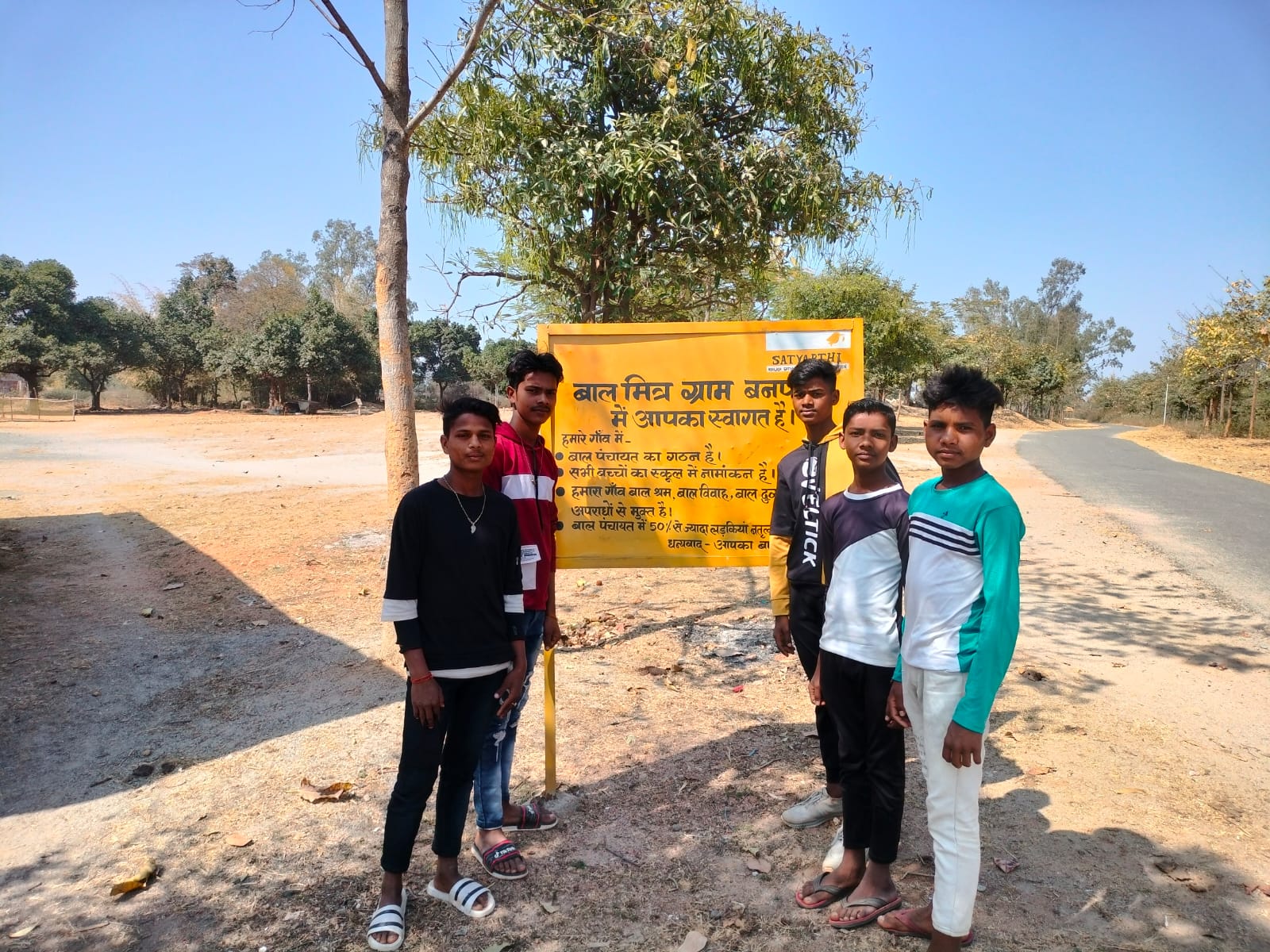 med at creating a child friendly world, where every child is free from exploitation, receives education, recreation and health facilities, their voices are heard and participation is ensured in an environment of friendliness, rights and dignity in the community. Since 2005, KSCF has been working in the mica villages of Bihar and Jharkhand. The programme’s primary goal is to contribute to making mica mining in Jharkhand and Bihar child-labour-free, ensure children’s access to education, form Bal Panchayats (Children’s Council) to take up their issues of protection, health and education and ensure its institutionalisation through recognition of the Gram Panchayat (Village Council).
med at creating a child friendly world, where every child is free from exploitation, receives education, recreation and health facilities, their voices are heard and participation is ensured in an environment of friendliness, rights and dignity in the community. Since 2005, KSCF has been working in the mica villages of Bihar and Jharkhand. The programme’s primary goal is to contribute to making mica mining in Jharkhand and Bihar child-labour-free, ensure children’s access to education, form Bal Panchayats (Children’s Council) to take up their issues of protection, health and education and ensure its institutionalisation through recognition of the Gram Panchayat (Village Council).
Since 2005, KSCF has been working in the mica villages of Bihar and Jharkhand. The programme’s primary goal is to contribute to making mica mining in Jharkhand and Bihar child-labour-free, ensure children’s access to education, form Bal Panchayats (Children’s Council) to take up their issues of protection, health and education and ensure its institutionalisation through recognition of the Gram Panchayat (Village Council).
SIGMA Foundation was assigned to do the impact documentation of the Bal Mitra Gram programme in mica mining villages of Jharkhand and Bihar. The main objective of the study was to examine the extent to which the intervention of “Bal Mitra Gram” program has brought the meaningful results as per the envisaged theory of change for the children, their parents and associated communities. The study was majorly based on primary data following a qualitative research method approach. 16 FGDs, 40 IDIs were conducted and 5 case studies were recorded from across Koderma and Giridih in Jharkhand, Nawada and Jamui (as comparison districts) in Bihar.
SIGMA Foundation completes “Endline Assessment Of Strengthening Implementation Of Rashtriya Kishor Swasthya Karyakram (RKSK) Program In Bhadrak District, Odisha”
Date: 3rd August 2023
There is need to ensure that the large adolescent population in India (253.2 million) reach their full potential and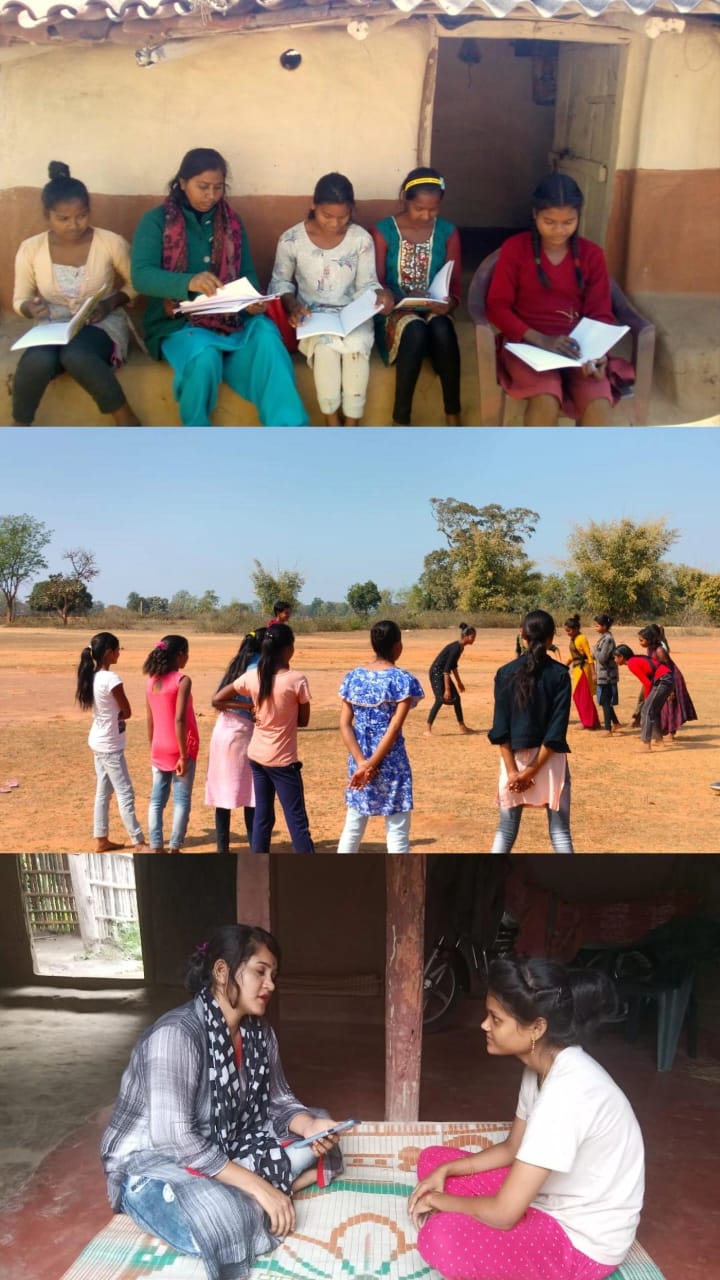 productivity for the growth and development of the country. This idea is embedded in the launch of the Rashtriya Kishor Swasthya Karyakram (RKSK) programme by the GoI, under the ‘National Adolescent Health Strategy’ in 2014, which recognizes the need for the holistic development of adolescents. RKSK is addresses the current and the anticipated needs of the adolescents in six priority areas- Sexual and Reproductive Health (SRH), nutrition, Non-Communicable Diseases (NCD), substance abuse, injuries and violence (including gender-based violence) and mental health.
productivity for the growth and development of the country. This idea is embedded in the launch of the Rashtriya Kishor Swasthya Karyakram (RKSK) programme by the GoI, under the ‘National Adolescent Health Strategy’ in 2014, which recognizes the need for the holistic development of adolescents. RKSK is addresses the current and the anticipated needs of the adolescents in six priority areas- Sexual and Reproductive Health (SRH), nutrition, Non-Communicable Diseases (NCD), substance abuse, injuries and violence (including gender-based violence) and mental health.
Centre for Catalyzing Change (C3), a leading NGO, has been facilitating the implementation of RKSK in Bhadrak district of Odisha. Under the project intervention, 5,500 Peer Groups have been formed with adolescent boys and girls in the age group of 10-19 years, and 178 Adolescent Friendly Clubs have been formed whose members meet at Health Sub Centre of that area each month.
SIGMA Foundation conducted an “Endline Assessment of Strengthening Implementation of Rashtriya Kishor Swasthya Karyakram (RKSK) Program In Bhadrak District, Odisha”. The study has been conducted in two districts of Odisha – Bhadrak (Intervention) and Kendrapara (Comparison), following a mixed methods approach, including quantitative and qualitative data collection and analysis. From each district, four blocks were selected from where boys and girls in the age group 10 to 21 years were selected through a purposive sampling. 1,625 quantitative interviews were collected with adolescents (826 girls and 799 boys) and qualitative interviews include 8 FGDs, 27 IDIs and 4 case studies.
The report was submitted to C3 within the due date.
SIGMA Foundation completes “Baseline Study and Training Need Assessment of Anganwadi Supervisors and Anganwadi Workers for Implementation of Targeted Counselling During 1000 Days Window” In Assam
Date: 2nd August, 2023
SIGMA Foundation conducted “Baseline Study and Training Need Assessment of Anganwadi Supervisors and Anganwadi Workers for Implementation of Targeted Counselling During 1000 Days Window.” In order to improve the maternal and child health care, Government of Assam, have organized and improved the service delivery to mothers and infants along the continuum of care across life cycle including access to health facilities. Data from National Family Health Survey (NFHS-5), 2019-2021 revealed that the nutritional status of children and its critical determinants such as exclusive breastfeeding, early initiation of breastfeeding and adequate complementary feeding has not shown much improvement in the recent years.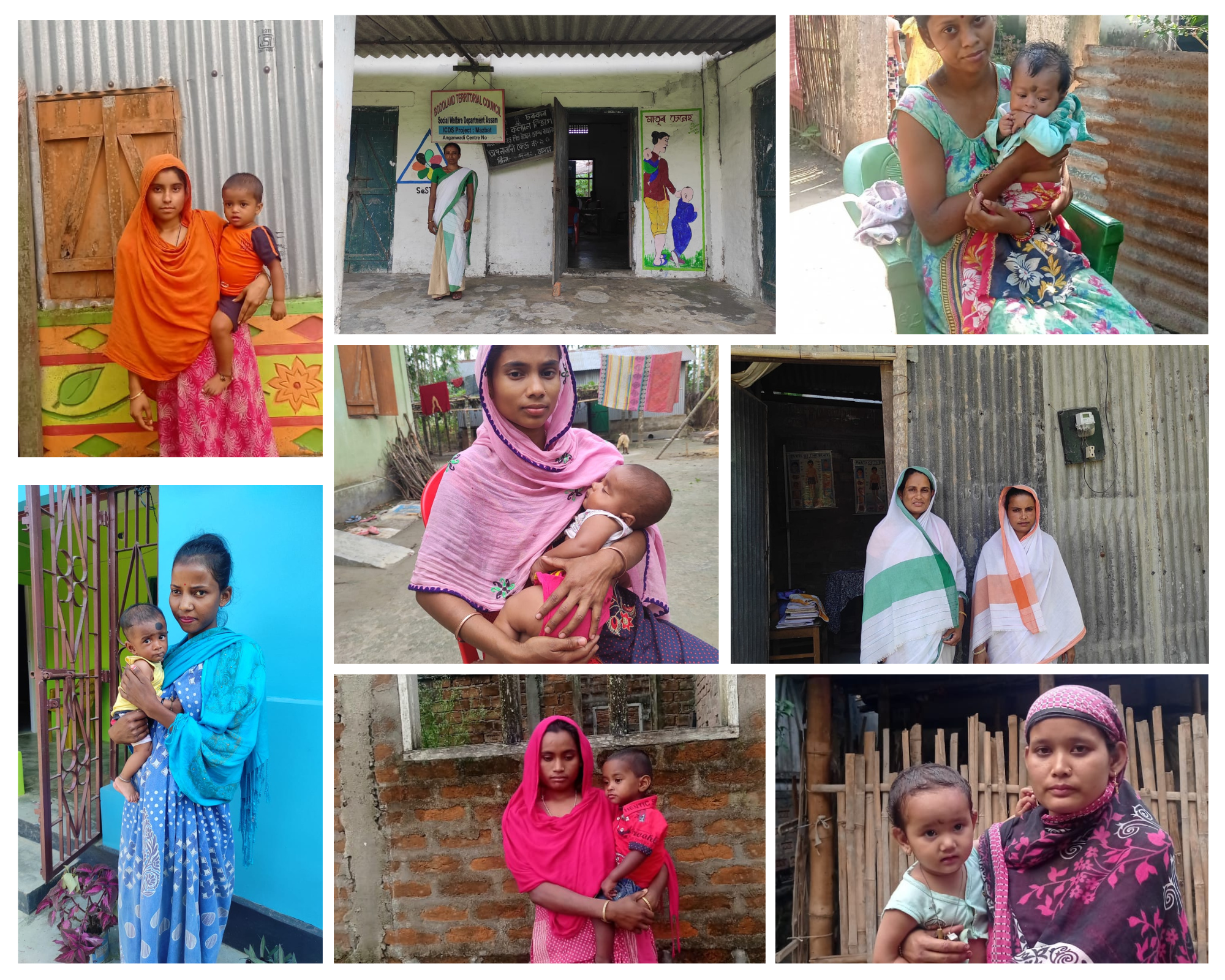
ITC Mission Sunehra Kal, as a development partner, collaborated with the Directorate of Women & Child Development, Govt of Assam to demonstrate the Prevention of Malnutrition in eight districts of Assam through working with Anganwadi workers on strengthening their capacity for home-based targeted counselling, especially during the first 1000 days through digital counselling tools and counselling aids. The interventions on the ground will be conducted by the YouthInvest Foundation. Before initiation of the formal intervention, YouthInvest Foundation wanted to conduct a baseline study as well as Training Need Assessment (TNA with Anganwadi Supervisors and Anganwadi Workers). This study is a part of the MoU signed between ITC and the Directorate of Women & Child Development, Govt of Assam.
The study was undertaken across eight districts of Assam namely Baksa, Barpeta, Dhubri, Darrang, Goalpara, Kamrup, Hailakandi and Udalguri during April 26th and May 4th, 2023. Household survey was conducted with 320 mothers/primary caregivers of under-two children (40 from each of the districts) across the eight districts. Physical survey was conducted with 10 AWSs and 20 AWWs in each of the districts within the selected sector (One ICDS sector from each block with the highest prevalence of malnourishment in under-five children was selected for the study/interventions). Thus, in total, 80 AWSs and 160 AWWs were reached through physical survey. Moreover, 518 AWSs and 11,533 AWWs were reached through online survey. Eight focus group discussions were also carried out with AWWs. The report on the study findings was submitted to YouthInvest Foundation.
In Solidarity Against Child Trafficking
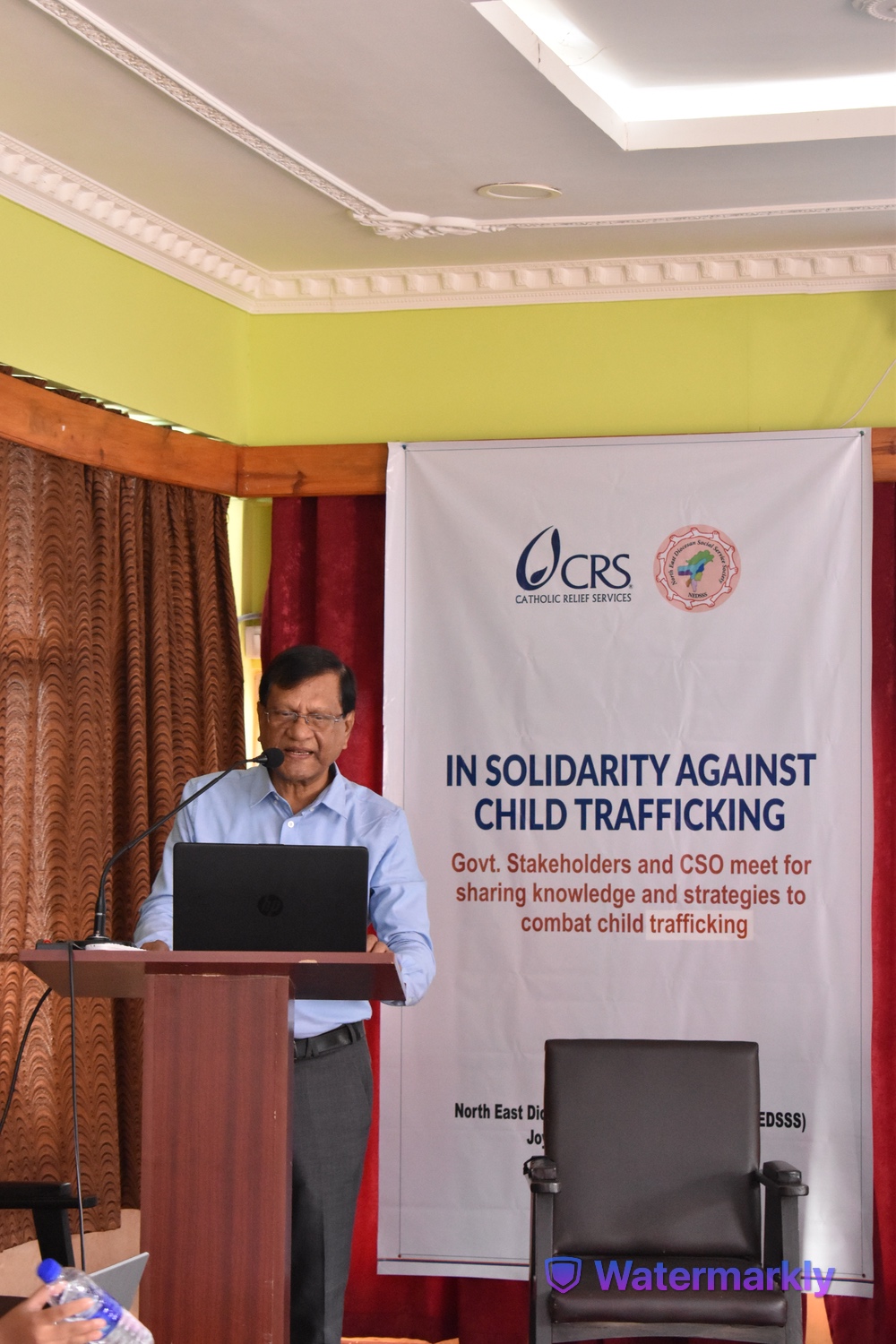 Guwahati, 3rd July, 2023 – SIGMA Foundation conducted a study on Status of Child Trafficking in North Eastern State on being engaged by North East Diocesan Social Service Society (NEDSSS) with support from Catholic Relief Services (CRS). The study brought out an overall situation on child trafficking in the seven Nort-Eastern states of India using secondary data. That was followed by a primary survey-based assessment of the situation on child trafficking in Assam. The 4 P approach (Prevention, Protection, Prosecution and Partnership) promoted by UNICEF was used as the framework of the study and the Protective Environment Framework followed by UNICEF in understanding child trafficking was also used to get better insights from the study. Qualitative data was collected from key officials of the state government, Gram Panchayat functionaries, NGOs working in this field and community members using tools like KIIs and FGDs.
Guwahati, 3rd July, 2023 – SIGMA Foundation conducted a study on Status of Child Trafficking in North Eastern State on being engaged by North East Diocesan Social Service Society (NEDSSS) with support from Catholic Relief Services (CRS). The study brought out an overall situation on child trafficking in the seven Nort-Eastern states of India using secondary data. That was followed by a primary survey-based assessment of the situation on child trafficking in Assam. The 4 P approach (Prevention, Protection, Prosecution and Partnership) promoted by UNICEF was used as the framework of the study and the Protective Environment Framework followed by UNICEF in understanding child trafficking was also used to get better insights from the study. Qualitative data was collected from key officials of the state government, Gram Panchayat functionaries, NGOs working in this field and community members using tools like KIIs and FGDs.
The report was disseminated in a workshop (named In Solidarity Against Child Trafficking) organized by NEDSSS in their campus at Guwahati on the 3rd July, 2023. The Director and other officials of NEDSSS, the Executive Director of CRS along with Head of Programme Ms Vijaylakshmi Arora and other officials of CRS, representatives from the State Child Protection Society (SCPS), Department of Women & Child Development, Govt. of Assam, UNICEF Assam Field Office, DLSA Kamrup district participated in the programme. Several reputed NGOs like Save the Children, CRY, NEDAN Foundation, SNEHALAY, UTSAH, and many others working in the field of child protection in Assam also participated in the workshop.
The report of SIGMA Foundation was presented before the participants by Dr M.N.Roy, President of the organization. This was followed by two panel discussions – one on ‘Inclusive Approaches to Combat Child Trafficking and Wellbeing for All’ and the other on ‘Strengthening Systems for Child Protection: Collaboration and Sustainable Solutions’. The discussions covered the key issues and challenges related to child trafficking and brought out good insights in planning suitable interventions for combating child trafficking in Assam.
